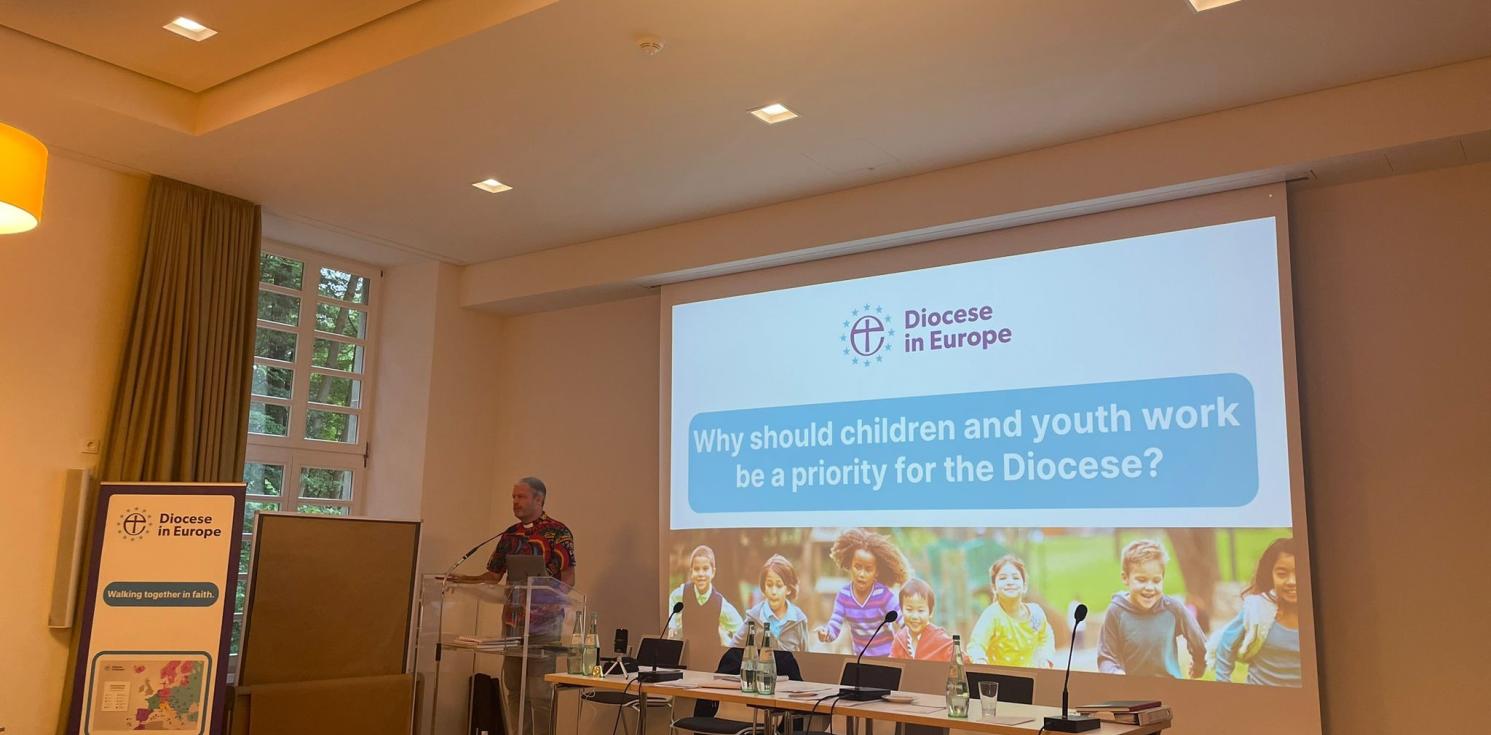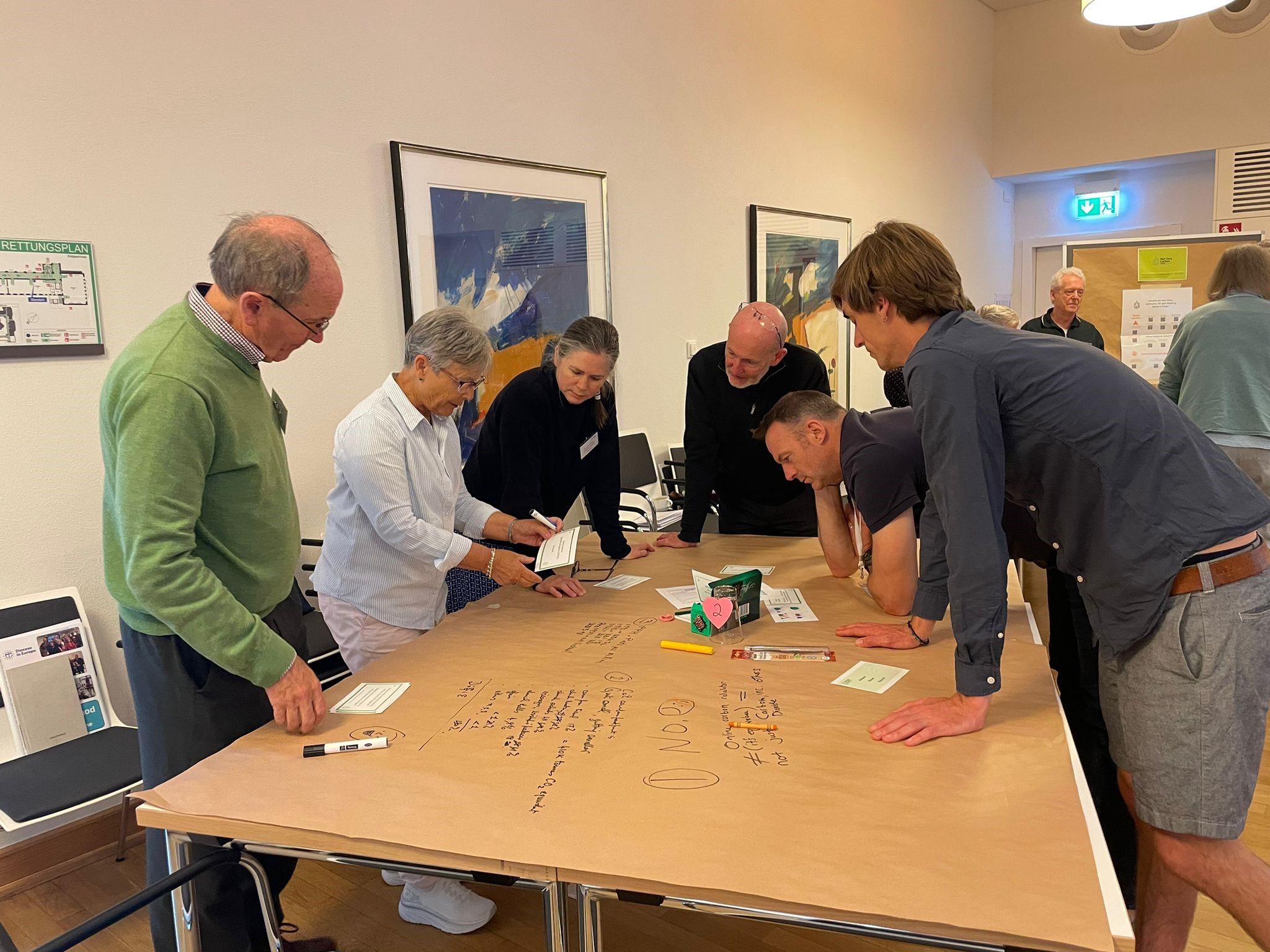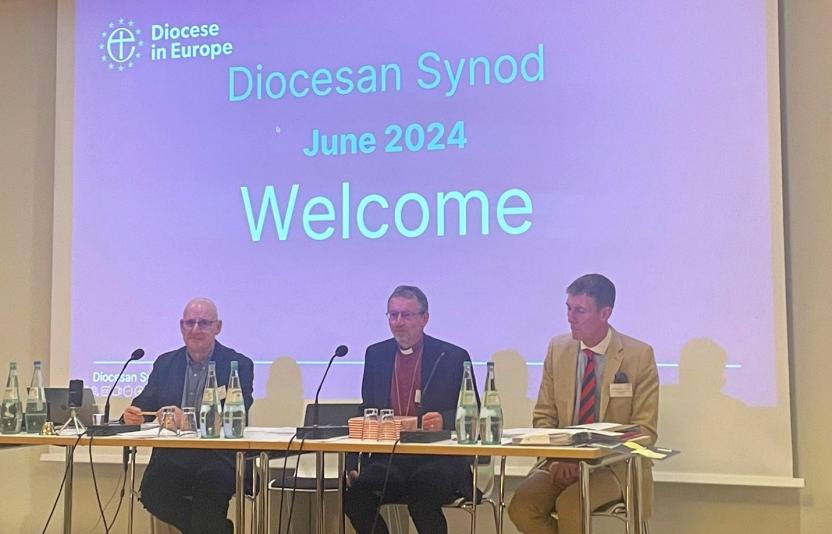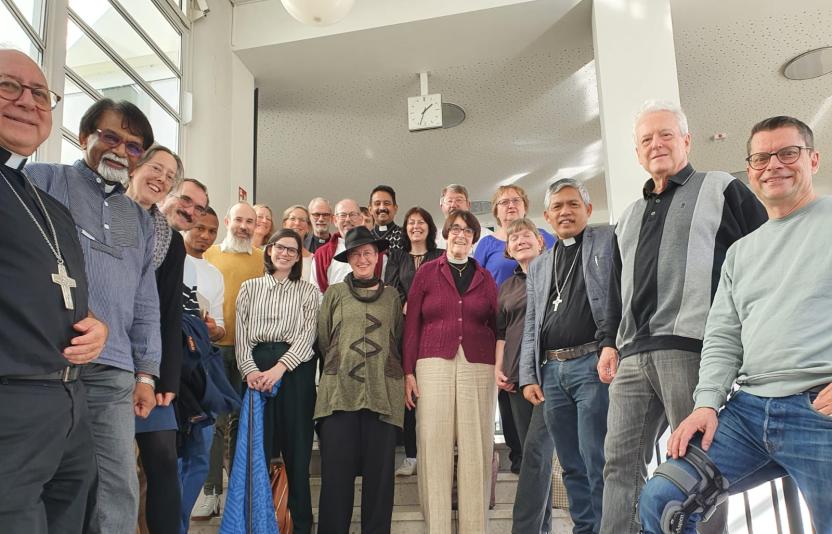News from the Diocesan Synod in Cologne

Each day at Synod began with morning prayer and Bible study led by Revd Richard Briggs, reflecting on passages from the Old Testament and mission in times of conflict and change – a very apt focus in our current times and a theme that will be picked up on by Archdeaconry Synods when they meet in the Autumn.
We covered several other topics this week, including Revd Canon Beth Bendry and Mary Talbot (chairs of the houses of clergy and laity respectively) who shared the results of the diocesan survey on clergy wellbeing, showing that while there has been encouraging improvements since the last survey in 2017-18, there is always work to do. A central theme of the feedback was from those in part time and house for duty posts who need particular focus and support.
Our work with children and young people is critical across our diocese, and we heard about the strategy for work with them and those who support them over the next few years. The strategy will be supported by national church funding.

We had sessions exploring the structure of safeguarding and the issue of independence in particular, led by the independent chair of the Diocesan Safeguarding Advisory Committee, Di Smith. We also looked at the future potential for increased training for lay leaders within our churches and communities.
Social action is a big part of our work in many chaplaincies across our diocese, and we heard from our plans towards Carbon Net Zero and also the work of our refugee support officer in Calais.
We had an energising workshop to increase our carbon literacy and understanding of the climate crisis with the diocesan Net Zero Officer Barbara Alger.

The Annual General Meeting of the Diocesan Board of Finance covered the areas of finance and governance. This included approval of last year’s Annual Report and accounts as well as the forecast for the year ahead.
Around these main sessions were more informal opportunities for people to gather, share experiences and gain support on areas such as Fundraising, Communications, Refugee support, Net Zero work and Safeguarding.

Throughout the week there was a continued sense of the benefits of working together as a community and importantly a feeling of optimism, and our role in helping to foster hope wherever we are as we share Christ’s hope for the world.
This was the last meeting of the 3 year (triennium) term of office of this Synod. There will be elections over the summer, so look out for details on the website and in your church newsletters in July. If you are interested in standing, then have a chat with your chaplain or by all means contact the Diocesan Secretary Andrew Caspari who can give you more information.
The next in person meeting of the Synod will be in Cologne once again from June 9 to June 12 2025.


